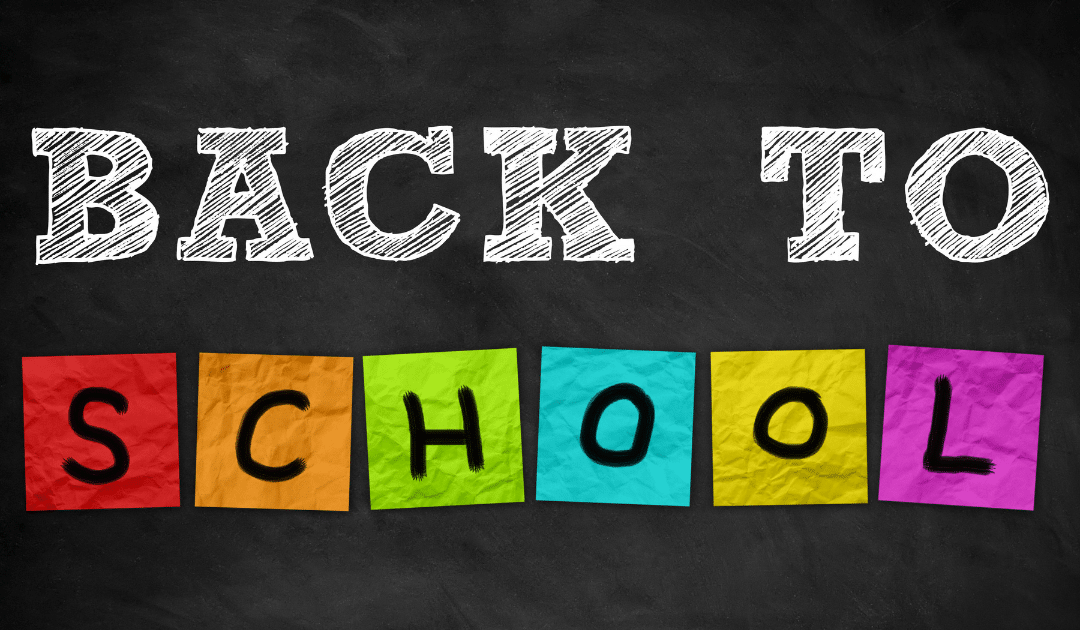If you’re not yet mentally prepared to return to school, you’re not alone. It was a tough year, and the summer seemed to fly by faster than usual. That’s where self-care can help get you back on track and ready for a new year in the classroom.
Here’s what you need to know so you can recharge your batteries for the year ahead.
What is teacher burnout?
The Mayo Clinic defines job burnout as “a special type of work-related stress – a state of physical or emotional exhaustion that also involves a sense of reduced accomplishment and loss of personal identity.” Causes for teacher burnout include too much work and not enough staff, difficult student behavior, inadequate administrator support, and not enough prep time. Add to that a global pandemic with additional stressors, and it’s easy to see why you may feel burned out.
Are you exhibiting these signs of burnout?
The warning signs of burnout can be subtle. They include being easily irritated or angered, disinterest in attending social gatherings, insomnia, and exhaustion. Over time, this can lead to anxiety and depression. Clearly, you’re not able to do your best work when you’re not feeling your best.
What is self-care?
Self-care is more than just treating yourself to a massage or a hot bath. It’s focusing on what you need to reboot your mental energy and restore your physical fortitude. With proper self-care, you can improve your mood and your productivity.
Why start practicing self-care?
Teachers are well-known for putting themselves last; it’s a habit we have to break. Just as the airlines tell us to position our oxygen masks before assisting our child, we need to put ourselves first before we can help others. Therefore, if you practice self-care, you’ll feel better, sleep better and be ready to tackle anything.
How do you practice self-care?
Practicing self-care is about taking care of your body and your mind: mental health and physical health. Developing good habits now can extend into the school year.
Nourish your body:
-
- Drink plenty of water. Aim for half of your body weight in ounces daily. (During the school year, time your water consumption by bathroom breaks.)
- Exercise 30 minutes a day. Walking, dancing, and movement of any kind counts.
- Get 7-9 hours of sleep a night. Try going to bed and waking up at the same time every day.
- Eat healthy foods. Enjoy the fresh produce that comes with summer and the time to experiment with new dishes before the school year starts.
Nourish your mind:
-
- Unplug from technology. An easy way is to charge your devices in another room, as you relax and unwind from the day.
- Enjoy 15 minutes of alone time daily. This will help your mental state.
- Practice gratitude. Keep track of all the things in your life for which you are grateful.
- Read a book that’s not related to work.
- Play your favorite music.
How else do you prepare yourself for the new school year?
Returning to school in the fall is stressful. It’s also exciting. Being as organized as possible will help reduce the stress and allow you to tap into the excitement. Here are some tips.
-
- Create a to-do list leading up to the beginning of school. Include things you want to accomplish this summer, and things needed to prepare for school. Revise as needed.
- Scoop up the summer discounts on classroom supplies.
- Get your body used to the school schedule. Go to sleep early the week prior to school.
- Plan to do lunch with colleagues during professional development days. Cheer each other on for the start of a new year.
- Schedule an early dinner with teacher friends the night before the first day of school.
- Wear a shirt with a positive message for the first day. That’s the message you’re sending to yourself as well as your students.
How do you continue the focus on self-care throughout the year?
You can continue the momentum throughout the year with some simple adjustments.
-
- Be present as much as possible. Interact with your students in the moment, rather than splitting your attention with technology or other concerns.
- Know your triggers and what sends you over the edge. Take steps to avoid them.
- If you feel frustrated, close your eyes, take a deep breath, and center yourself.
- Take physical and mental breaks. Get outside and breathe the fresh air during the school day.
- Reduce your workload, such as in the homework you have to grade.
- Be open, flexible, and adaptable. See the humor in the moment; it’s okay to laugh.
- Remind yourself that the work you do matters. That’s why you became a teacher in the first place.
This article is furnished by California Casualty, providing auto and home insurance to educators, law enforcement officers, firefighters, and nurses. Get a quote at 1.866.704.8614 or www.calcas.com.
- Graduation – When to Remove Your Child from Your Auto Policy - May 18, 2023
- How to Prevent Catalytic Converter Theft - May 17, 2023
- How Much Does Home Insurance Cost? - May 17, 2023

